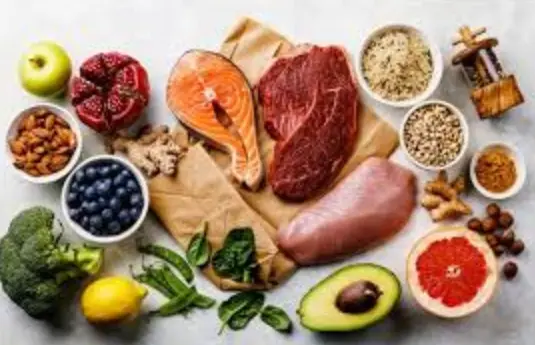
8 Foods to Abstain from When You Have Cancer and more
When you have cancer disease, you might lose your appetite or the urge to eat, most especially during your treatment process or after your treatment process. Although, having to eat well is very important to enable your body to manage both the disease and its treatment. And just as there are very healthy foods to join to your normal diet to reduce the developing capability of cancer in the body, there are some important foods to avoid or abstain from when you have cancer. Because Some of thses foods may endanger your life or put you at risk for foodborne illness, or food poisoning, while some may cause pain or probably increase the sickness. Endeavor to Talk to your doctor about the best nutrition plan during your treatment process, but generally, it’s best you keep these foods out of your diet program if you’re living with cancer.
1. Unpasteurized Dairy Products
While undergoing cancer treatment, your immune system can’t protect you as well as usual. Unpasteurized dairy products, such as raw milk and raw yogurt, and soft cheeses like Brie, may contain bacteria that could make you sick. This includes products from cows, sheep and goats. Normally, your body may be able to cope with these bacteria, but if you have a compromised immune system, you could develop a severe infection.
2. Raw Eggs
Eggs are a handy, nutritious packet of food. You can eat them in many forms—boiled, scrambled, fried—and you can add them to several dishes. But avoid any dish that contains raw or lightly cooked eggs, such as pasta carbonara or Hollandaise sauce. Eggs that aren’t cooked properly can contain Salmonella bacteria, which can cause an infection with the same symptoms as from contaminated dairy products. A popular way to consume raw eggs is in smoothies. Smoothies with fruits and vegetables can be healthy, but if you add in a raw egg, you risk making the smoothie unsafe.
3. Unwashed Produce
Always wash the produce you bring home from the store or market, even if it’s labeled “pre-washed.” Be especially cautious with fruits and vegetables you grow yourself, especially leafy ones. Dirt may not always be visible, but it could contain bacteria that could make you seriously ill. This includes homegrown or store-bought fresh herbs, such as basil or thyme. If a fruit or vegetable has a rind you won’t or can’t eat, wash it anyway because if you cut through the rind with a knife, you could bring dirt from outside the produce in towards the flesh.
4. Undercooked Meat
If you like your hamburger rare or enjoy an occasional steak tartare, stop. Undercooked meat and poultry, and raw seafood, like oysters, may contain bacteria or viruses that can cause foodborne illness. The minimal internal temperature for cuts of beef, pork, veal and lamb is 145 degrees Fahrenheit. Ground beef should be a minimum of 160 degrees. Poultry should be 165 degrees, minimum, while fish and shellfish should be 145 degrees minimum.
5. Raw Vegetable Sprouts
Raw vegetable sprouts are becoming popular in everyday cuisine. They add a visual pop and maybe a nice crunch to a salad, and they do have health benefits. However, these sprouts have also been subject to recalls over the years, due to contamination. Some types of contamination, such as E. coli, may not be easily cleaned off the produce, so it is safer to avoid consuming them while your immune system is not at its strongest.
Whether it’s in your own kitchen or you’re visiting a friend for a buffet-style dinner, avoid foods that should be hot or cold but have been left out at room temperature for two hours or more. Hot foods should stay at 140 degrees Fahrenheit or higher and cold foods should be 40 degrees or lower. If you do host a buffet, slow cookers (plugged in!) can keep food warm, as can warming trays and chafing dishes. Ice baths can help keep food cold.
7. Junk Food
If you’re suddenly hungry or you have a craving, junk food may be tempting. But chips and fast food meals don’t contain the nutrients your body needs while you are undergoing cancer treatment. They may fill you up temporarily, but you may be hungrier more quickly as the food passes through you. Also, many fast foods are high in salt, which can dehydrate you. If you really must satisfy a craving, however, do so in moderation. A small helping may be all you need, without disrupting your regular meals.
8. Foods With Sharp or Spicy Flavors
Potential side effects of some types of radiation and chemotherapy are sores in your mouth, a sore throat, and nausea and vomiting. Avoid any foods or drinks that are sour, tart, acidic or spicy, as these may make the sores more painful. Instead, choose bland options, such as cream-based soups, pudding, milkshakes, or cooked or canned fruits and vegetables. Strongly flavored foods can also trigger nausea or make it worse. It can take some trial and error to find the foods that work best for you.
9. Food and Drinks That Are Dehydrating
While you are receiving cancer treatment, it’s important to stay hydrated. If you eat or drink something that is dehydrating, this could make the side effects more pronounced. Stay away from meals that are very salty, and avoid drinks with alcohol or caffeine, as they are also dehydrating. If you’re very thirsty, it may be tempting to reach for anything, including a cola. Instead, drink water regularly throughout the day to quench your thirst before it starts.
Foods to Avoid During Cancer Treatment
If your treatment has caused side effects like nausea, taste changes, or mouth sores, you probably have already started your own mental list of foods you’d much rather steer clear of. However, there are some foods that no matter how good they sound are probably best avoided due to the risk of foodborne illness, aka food poisoning. Because some treatments can weaken your immune system until at least a few weeks after they’ve ended (longer if you had a stem cell/bone marrow transplant), food poisoning is not something to tempt. The results of developing a foodborne illness can be serious.
Eating raw or undercooked foods is a common cause of food poisoning. Proper cooking destroys bacteria, but they can start to grow on cooked food if it is left out or in the refrigerator for too long. Food also can become contaminated when someone infected with a virus or other “bug” handles it.
Paying attention to food safety rules and being extra careful when handling, preparing, and storing food is definitely important. However, some people who are receiving or have recently finished cancer treatment should avoid some foods entirely, even if they may have eaten them with no problems in the past. These include:
- Cold hot dogs or deli lunch meat (cold cuts)—Always cook or reheat until the meat is steaming hot.
- Dry-cured, uncooked salami
- Unpasteurized (raw) milk and milk products, including raw milk yogurt
- Soft cheeses made from unpasteurized milk, such as blue-veined (a type of blue cheese), Brie, Camembert, feta, goat cheese, and queso fresco/blanco
- Smoked fish
- Deli-prepared salads with egg, ham, chicken, or seafood
- Refrigerated pâté—Sorry foodies!
- Unwashed fresh fruits and vegetables, especially leafy vegetables that can hide dirt and other contaminants
- Unpasteurized fruit juice or cider
- Raw sprouts like alfalfa sprouts
- Raw or undercooked beef (especially ground beef) or other raw or undercooked meat and poultry
- Raw or undercooked shellfish, like oysters—These items may carry the hepatitis A virus and should be cooked thoroughly to destroy the virus.
- Sushi and sashimi, which often contain raw fish—Commercially frozen fish, especially those labeled “sushi-grade” or “sashimi-grade,” is safer than other fish, but check with your doctor, nutritionist, or another member of your health care team before eating these foods.
- Undercooked eggs, such as soft boiled, over easy, and poached
- Raw, unpasteurized eggs or foods made with raw egg, such as homemade raw cookie dough
Talk with your doctor or another member of your health care team about how long you should take food precautions and when you can return to eating certain foods again.

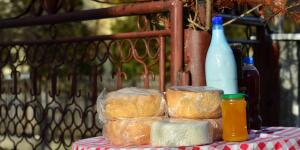
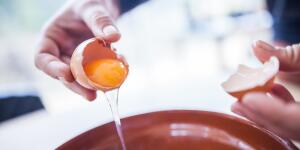
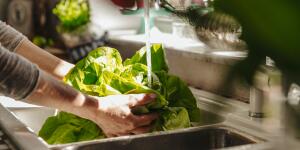
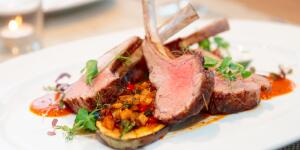
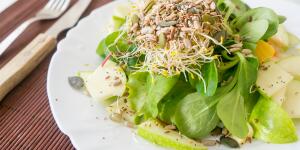
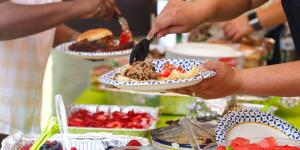
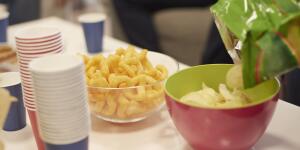
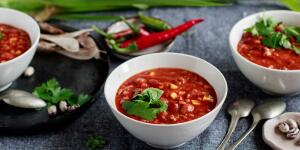

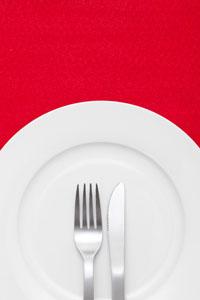
Leave a Reply